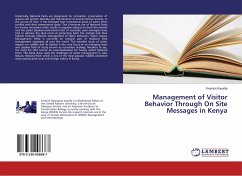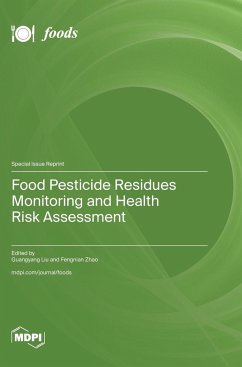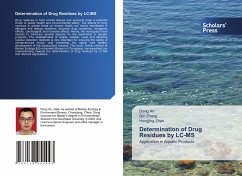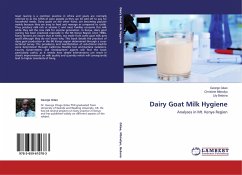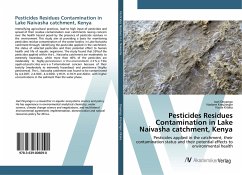
Pesticides Residues Contamination in Lake Naivasha catchment, Kenya
Pesticides applied in the catchment, their contamination status and their potential effects to environmental health
Versandkostenfrei!
Versandfertig in 6-10 Tagen
33,99 €
inkl. MwSt.

PAYBACK Punkte
17 °P sammeln!
Intensifying agricultural practices, lead to high input of pesticides and spread of their residue contamination over catchments raising concern over the health hazard posed by the presence of pesticide residues in the environment. This study aim at providing a basis for monitoring pesticides residue contamination of the water bodies in Lake Naivasha catchment through; identifying the pesticides applied in the catchment, the status of selected pesticides and their potential effect to human health and life of aquatic organisms. The study found that 59%of the pesticides applied within the L. Naiv...
Intensifying agricultural practices, lead to high input of pesticides and spread of their residue contamination over catchments raising concern over the health hazard posed by the presence of pesticide residues in the environment. This study aim at providing a basis for monitoring pesticides residue contamination of the water bodies in Lake Naivasha catchment through; identifying the pesticides applied in the catchment, the status of selected pesticides and their potential effect to human health and life of aquatic organisms. The study found that 59%of the pesticides applied within the L. Naivasha catchment are moderately to extremely hazardous, while more than 40% of the pesticides are moderately to highly persistence in the environment. 22% of the applied pesticides were of international concern because of their toxicity (moderately to extremely hazardous) and persistence (highly persistence). The L. Naivasha catchment was found to be contaminated by 4,4-DDT, 2,4-DDE, 4,4-DDD, Gamma-HCH, -HCH and Aldrin, with higher concentrations in the sediment than the water phase.



